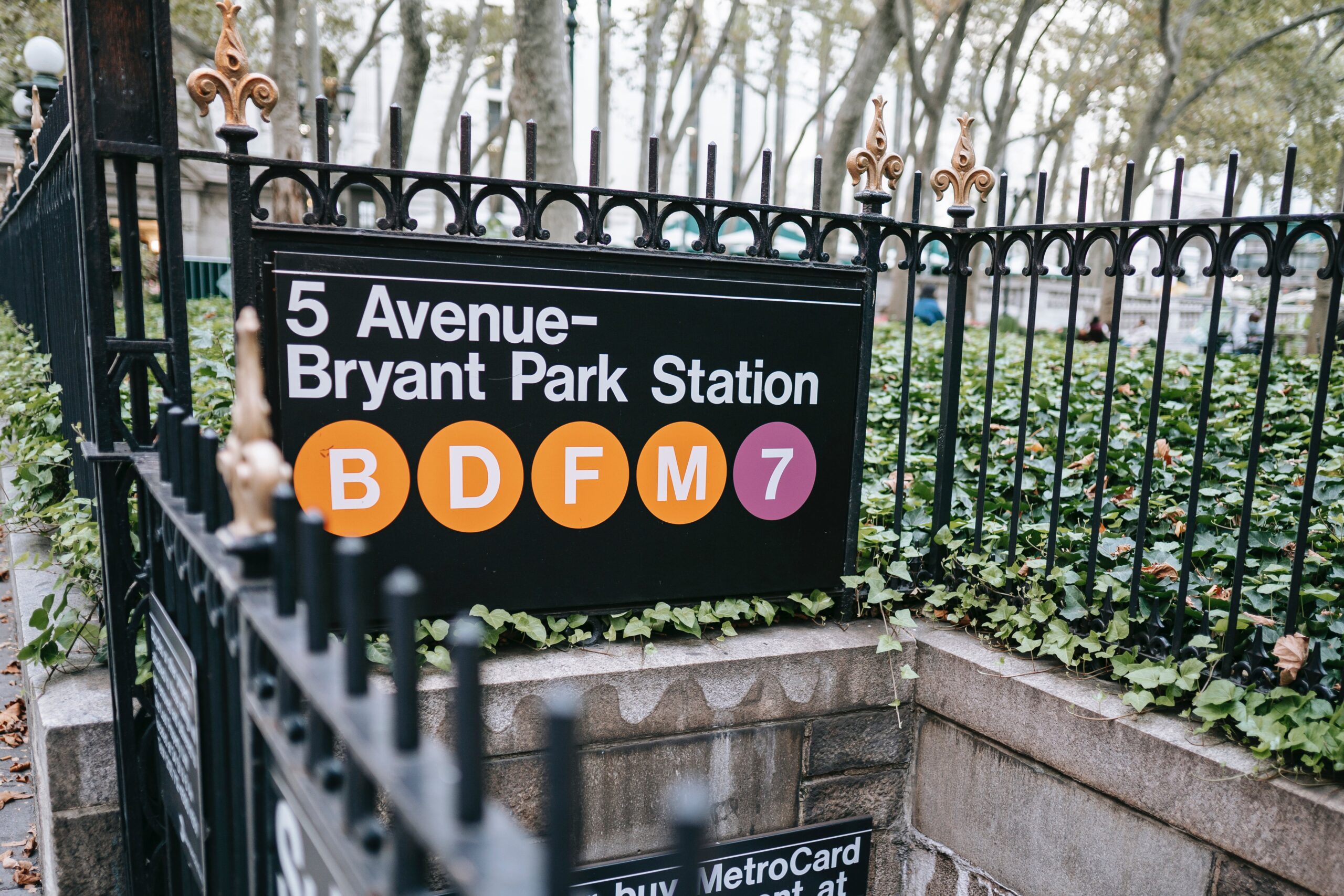If you’re aspiring to launch a cannabis business in North Dakota, understanding the intricate maze of zoning regulations is vital. With the newly legalized recreational marijuana industry brimming with potential, it’s crucial to navigate the specific zoning requirements seamlessly. From selecting the appropriate location for your dispensary to ensuring compliance with local ordinances, this article will guide you on the journey to successfully navigating the zoning regulations for your cannabis business in North Dakota. So grab a pen and paper, and let’s embark on this exciting adventure together!

Understanding Zoning Regulations for Cannabis Businesses
Zoning regulations refer to the rules and restrictions that dictate how land can be used in a specific area. These regulations are implemented by local governments to ensure that different types of businesses and activities are appropriately located and do not interfere with one another. For cannabis businesses, zoning regulations play a crucial role in determining where these establishments can operate, and what conditions they must meet to comply with the law.
Why are zoning regulations important for cannabis businesses?
Zoning regulations are particularly important for cannabis businesses due to the unique nature of the industry. As the legalization and acceptance of cannabis continues to grow, it is necessary to establish guidelines to prevent conflicts with neighboring businesses and ensure compliance with state and federal laws. Zoning regulations help ensure that cannabis businesses are located in appropriate areas, taking into account factors such as public safety, community concerns, and the specific needs of the cannabis industry.
Key factors to consider in zoning regulations for cannabis businesses
When navigating zoning regulations for cannabis businesses, there are several key factors that you should consider. These include:
-
Location restrictions: Zoning regulations often dictate where cannabis businesses can be located, such as specific zones or districts within a city or county. It is important to research and understand these location restrictions to ensure compliance.
-
Setbacks and buffer zones: Setbacks refer to the minimum distance that cannabis businesses must be located from certain areas, such as schools, parks, or residential neighborhoods. Buffer zones are intended to create distance between cannabis businesses and sensitive locations. Compliance with setbacks and buffer zones is essential to meet zoning requirements.
-
Signage and advertising limitations: Zoning regulations may impose restrictions on the size, placement, and content of signage and advertising for cannabis businesses. Understanding these limitations is crucial to avoid potential violations and fines.
-
Parking and traffic requirements: Zoning regulations may also address parking and traffic concerns related to cannabis businesses. Compliance with these requirements ensures that the business does not create unnecessary congestion or safety hazards in the surrounding area.
Researching Cannabis Zoning Regulations in North Dakota
Before starting or expanding a cannabis business in North Dakota, it is essential to thoroughly research the state-specific zoning regulations. This includes understanding the overall landscape of the cannabis industry in the state, as well as the local zoning ordinances that govern specific areas.
Overview of the cannabis industry in North Dakota
North Dakota’s cannabis industry is still relatively new and evolving. The state has legalized medical cannabis, but recreational use remains illegal. Understanding the current regulations and any potential changes or developments in the industry is crucial to compliance.
Understanding the local zoning ordinances
Each city or county in North Dakota may have its own specific zoning ordinances that dictate where cannabis businesses can be located. It is important to review and understand these regulations to ensure that your business is in line with local requirements.
Identifying appropriate zones for cannabis businesses
Once you have a clear understanding of the local zoning ordinances, the next step is to identify the appropriate zones where cannabis businesses are permitted. This could include industrial areas, commercial districts, or other designated zones. Consulting with a real estate agent or zoning expert can be helpful in this process.
Reviewing state-specific zoning regulations
In addition to local zoning ordinances, it is essential to review and fully understand the state-specific zoning regulations for cannabis businesses in North Dakota. This includes compliance with setbacks, buffer zones, signage, and other requirements outlined by state law.

Working with Local Government Entities
Engaging with local city or county officials is an important step in navigating zoning regulations for a cannabis business in North Dakota. Establishing positive relationships and open lines of communication can help facilitate the approval process and ensure compliance with local regulations.
Building relationships with planning and zoning departments
Building relationships with key personnel in the local planning and zoning departments is crucial. These individuals can provide valuable insights and guidance regarding the specific requirements for cannabis businesses in the area. Regular communication and transparency can help foster a positive working relationship.
Attending public hearings and meetings
Attending public hearings and meetings related to cannabis zoning regulations allows you to stay informed and express your support for responsible cannabis business practices. It also provides an opportunity to address any concerns or objections from the community, and showcase your commitment to being a responsible and respected member of the local business community.
Obtaining permits and licenses
Working closely with local government entities is essential for obtaining the necessary permits and licenses to operate a cannabis business in North Dakota. This may include specific licenses for cannabis cultivation, processing, or retail sales. Familiarize yourself with the application process and ensure compliance with all requirements.
Complying with State and Federal Requirements
Compliance with both state and federal requirements is crucial for the successful operation of a cannabis business. Understanding the specific laws and regulations at the state and federal levels is essential to avoid legal consequences and maintain a reputable business.
Understanding state-specific cannabis laws and regulations
Each state has its own set of laws and regulations governing the cannabis industry. In North Dakota, it is important to understand the specific requirements for obtaining and renewing licenses, complying with product testing and labeling standards, and adhering to restrictions on advertising and marketing.
Federal restrictions on cannabis businesses
Despite some states legalizing cannabis for medical or recreational use, it remains illegal at the federal level. This creates unique challenges and restrictions for cannabis businesses. It is important to understand the federal laws and regulations that apply to the industry, particularly in areas such as banking, taxation, and interstate commerce.
Ensuring compliance with both state and federal guidelines
To operate a successful cannabis business in North Dakota, it is crucial to ensure compliance with both state and federal guidelines. This may involve implementing strict record-keeping practices, regularly evaluating and updating business operations, and staying informed about any changes to the regulatory landscape.
Navigating the regulatory landscape
The regulatory landscape for the cannabis industry is constantly evolving. Staying informed about changes, updates, and new regulations is essential to maintain compliance and avoid potential penalties. Engaging with industry associations, attending conferences and seminars, and consulting with legal professionals can help navigate the complex regulatory environment.

Securing Proper Business Zoning Approvals
Securing proper business zoning approvals is a critical step in establishing a cannabis business in North Dakota. This involves submitting applications, meeting requirements, and addressing any concerns or objections that may arise during the approval process.
Submitting applications and required documents
Submitting complete and accurate applications, along with all required supporting documents, is crucial for obtaining business zoning approvals. These documents may include floor plans, security measures, odor control plans, and other information needed to demonstrate compliance with zoning regulations.
Navigating the zoning approval process
The zoning approval process can vary depending on the city or county in North Dakota. It typically involves a thorough review of the application and supporting documents by the planning and zoning department, public hearings or review board meetings, and final approval or denial of the zoning request. Engaging with the process and providing any additional information or clarification as requested is key to a successful outcome.
Working with consultants and attorneys
Engaging the services of experienced consultants and attorneys who specialize in cannabis zoning regulations can be immensely helpful. These professionals can navigate the complexities of the approval process, provide guidance on best practices, and address any legal or technical issues that may arise.
Addressing concerns and objections
During the zoning approval process, it is possible that concerns or objections from the community or neighboring businesses may arise. It is essential to address these concerns professionally and constructively. Offering solutions, engaging in open dialogue, and demonstrating a commitment to being a responsible and respectful neighbor can help ease concerns and gain support.
Evaluating Zoning Restrictions and Limitations
When considering a location for a cannabis business in North Dakota, evaluating zoning restrictions and limitations is crucial. This ensures compliance with zoning regulations and helps identify areas where the business can thrive.
Analyzing setbacks and buffer zones
Setbacks and buffer zones play a critical role in determining where a cannabis business can be located. Understanding the specific requirements for setbacks from schools, residential areas, and other sensitive locations is essential to ensure compliance with zoning regulations.
Assessing proximity to sensitive areas
Proximity to sensitive areas, such as schools, parks, or rehabilitation centers, is often a key consideration in cannabis zoning regulations. Evaluating the surrounding area and understanding the distance requirements can help identify suitable locations for a cannabis business.
Understanding limitations on signage and advertising
Zoning regulations may impose limitations on signage and advertising for cannabis businesses. It is important to understand these restrictions to ensure compliance and avoid any potential fines or violations. Consulting with local officials or legal professionals can provide guidance on signage requirements.
Considering parking and traffic requirements
Cannabis businesses can generate significant foot and vehicle traffic. Evaluating the parking and traffic requirements set forth by zoning regulations is crucial to ensure that the business can accommodate its customers and employees without causing disruptions or safety hazards in the surrounding area.

Working with Real Estate Professionals
Engaging with real estate professionals who have experience working with cannabis businesses can be highly beneficial. These professionals understand the unique needs and challenges of the industry and can help identify suitable properties, navigate lease or purchase agreements, and address any modifications or renovations required for compliance.
Engaging with cannabis-friendly real estate agents
Working with real estate agents who have experience working with cannabis businesses can provide valuable insight into the available properties that meet zoning requirements. These agents can help identify properties in suitable locations and assist with negotiating leases or purchase agreements.
Finding suitable properties for cannabis businesses
Finding suitable properties for cannabis businesses involves considering various factors, including zoning regulations, proximity to the target market, accessibility, and security requirements. Real estate professionals can assist in the property search and help evaluate potential options.
Understanding lease and purchase agreements
Lease and purchase agreements for cannabis businesses may have specific provisions and requirements related to zoning regulations. Understanding these agreements, including any restrictions or obligations, is crucial to ensure compliance and protect the interests of the business.
Considerations for property modifications and renovations
Depending on the specific requirements of the cannabis business and the property’s condition, modifications or renovations may be necessary to meet zoning regulations. Collaborating with professionals in construction, architecture, or engineering can help ensure that any modifications or renovations are compliant and meet the necessary safety standards.
Mitigating Potential Community Concerns
Addressing potential community concerns is essential for establishing a positive public image and gaining the support of neighbors and the local community. Proactive community engagement strategies can help alleviate concerns and establish the cannabis business as a responsible and valued member of the community.
Addressing concerns of neighboring businesses and residents
Engaging in open and transparent communication with neighboring businesses and residents is crucial. Addressing any concerns they may have, providing information about security measures, odor control, and community benefits can help alleviate fears and build positive relationships.
Proactive community engagement strategies
Taking a proactive approach to community engagement is key to fostering positive relationships. This can include hosting open houses or community events, participating in local initiatives, and seeking opportunities to contribute to the community’s well-being. By showcasing a commitment to being a responsible corporate citizen, the cannabis business can build trust and support.
Offering benefits to the community
Cannabis businesses can offer various benefits to the local community, such as job creation, tax revenue, and charitable contributions. Communicating these benefits and highlighting the positive impact the business can have on the community helps foster goodwill and support.
Establishing a positive public image
Maintaining a positive public image is essential for the long-term success of a cannabis business. This involves not only complying with zoning regulations and operating responsibly but also actively engaging in public relations efforts to promote a positive perception of the business within the community. This can include media outreach, social media presence, and community involvement.

Navigating Zoning Appeals and Variances
In some cases, it may be necessary to navigate zoning appeals or seek variances to overcome zoning restrictions or limitations. Understanding the process and requirements for appeals is crucial when faced with zoning challenges.
Understanding the process of zoning appeals
If a zoning decision is unfavorable or if there is a need to challenge a decision, understanding the process of zoning appeals is essential. This typically involves filing a formal appeal, presenting arguments, and potentially seeking mediation or a hearing to resolve the dispute.
Preparing compelling arguments for variances
Seeking variances allows cannabis businesses to request exceptions to certain zoning regulations. Building a strong and compelling argument, supported by evidence and expert opinions, is crucial for a successful variance request. Engaging with legal counsel experienced in zoning regulations can provide valuable guidance in this process.
Working with legal counsel for appeals
Navigating zoning appeals can be complex, requiring a thorough understanding of the legal process and relevant regulations. Engaging experienced legal counsel with expertise in zoning regulations can provide valuable guidance, legal representation, and help ensure that the appeal process is properly navigated.
Engaging with local community boards and review panels
Local community boards and review panels often play a role in zoning appeals. Engaging with these entities, working to address concerns, and presenting a well-prepared case can influence their decision-making process and potentially secure a favorable outcome.
Continued Compliance and Adaptation
Zoning regulations and requirements for the cannabis industry are subject to change and evolve over time. It is crucial for cannabis businesses to stay updated on any new regulations, adapt their operations, and maintain ongoing compliance with zoning requirements.
Staying updated on evolving zoning regulations
Remaining informed about any changes in zoning regulations is essential for maintaining compliance with cannabis business operations. This includes staying up-to-date on new laws, regulations, and any amendments to existing zoning ordinances. Regularly consulting with legal professionals and industry associations can help ensure that the business remains aware of any new developments.
Adapting to changes in the cannabis industry
The cannabis industry is constantly evolving, and zoning regulations may need to adapt to keep pace with this growth. Cannabis businesses must remain flexible and adaptive to changes in the industry and zoning requirements. This may involve modifying operations, updating security measures, or revising business plans to align with current regulations.
Maintaining ongoing compliance with zoning requirements
Compliance with zoning requirements is an ongoing commitment for cannabis businesses. Regular inspections, record-keeping, and internal audits should be conducted to ensure that the business continues to meet all zoning regulations. Staying proactive and addressing any issues promptly is crucial to avoid potential penalties or suspensions of operations.
Building long-term relationships with regulators
Establishing and maintaining positive relationships with regulatory agencies and officials can contribute to ongoing compliance and adaptation. Regular communication, attending industry events, and demonstrating a commitment to best practices and responsible operations can help build trust and goodwill with regulators.
In conclusion, navigating zoning regulations for a cannabis business in North Dakota requires a comprehensive understanding of both state and local regulations. By conducting thorough research, engaging with local government entities, complying with state and federal requirements, securing proper business zoning approvals, evaluating zoning restrictions and limitations, working with real estate professionals, mitigating potential community concerns, navigating appeals and variances, and maintaining ongoing compliance, cannabis businesses can successfully operate in a manner that aligns with zoning regulations and fosters positive relationships within the community.
